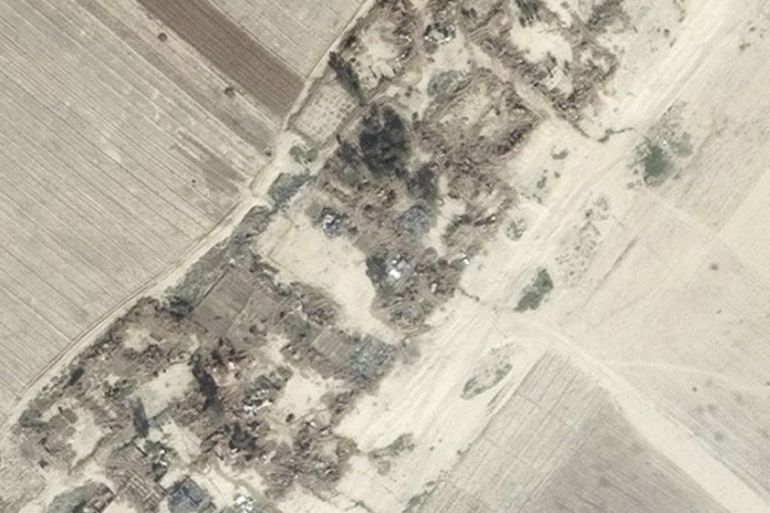Kurds accused of razing Arab villages in northern Iraq
Amnesty alleges forced displacement and destruction in areas recaptured from ISIL – claims Kurdistan government refutes.

Mass destruction of Arab homes by Kurdish forces is under way in northern Iraq – a situation that may amount to war crimes, a human rights group says.
Kurdish forces bulldozed, blew up and burned down thousands of homes in Arab villages to avenge perceived support for the Islamic State of Iraq and the Levant (ISIL) group after capturing the areas, Amnesty International said in a report released on Wednesday.
Keep reading
list of 4 itemsThe cost of Saudi Arabia’s purge
Iraqi forces in full control of Kirkuk province
Iraq’s military declares mission accomplished in Kirkuk
Satellite imagery corroborates evidence of “mass destruction”, Amnesty said.
“This is part of a drive to reverse past abuses by the Saddam Hussein regime, which forcibly displaced Kurds and settled Arabs in these regions,” the report alleged.
Arab residents who fled from their homes are barred by Kurdistan Regional Government (KRG) forces from returning to areas retaken from ISIL, it said.
“KRG forces appear to be spearheading a concerted campaign to forcibly displace Arab communities by destroying entire villages in areas they have recaptured from [ISIL] in northern Iraq,” said Amnesty’s Donatella Rovera, who carried out field research in northern Iraq.
“The forced displacement of civilians and the deliberate destruction of homes and property without military justification may amount to war crimes.”
|
|
Dindar Zebari, head of the KRG’s committee to respond to international reports, refuted the allegations.
“Our forces have followed all standards of human rights and humanitarian laws in the fight against ISIL in Iraq,” Zebari told Al Jazeera . “On civilian displacement, we had discussions with Amnesty months ago.”
He said the Kurdish administration has helped about 700,000 internally displaced Iraqi Arabs over the past two years, adding that most cannot go back home because it is still not safe, and basic services – such as education and healthcare – are not available.
The destruction of homes and buildings was the result of fierce fighting with ISIL, he said.
“On the frontlines there are several challenges… The nature of the warfare has led to much of this destruction,” said Zebari.
ISIL seized control of about one-third of Iraq in the summer of 2014.
Kurdish Peshmerga forces have since driven the fighters back in the north of Iraq with the help of air strikes from a US-led coalition, expanding their control to include ethnically mixed territories that they claim as their own.
Amnesty said thousands of Arab civilians who fled fighting were struggling to survive in makeshift camps with no homes left to return to.
“By barring the displaced from returning to their villages and destroying their homes, KRG forces are further exacerbating their suffering,” said Rovera.
OPINION: Arabs in the eye of history
Amnesty said it documented evidence of the “war crimes” in three provinces: Nineveh, Kirkuk and Diyala, which Peshmerga forces captured from ISIL between September 2014 and March 2015.
All three are outside the borders of the autonomous Kurdish region. Critics accuse Iraqi Kurdish leaders of wanting to incorporate territory into their autonomous region, and depopulating them of Arabs aids that effort.
“All I know is that when the Peshmerga retook the village the houses were standing … and later they bulldozed the village,” Amnesty’s report quoted Tabaj Hamid villager Maher Nubul as saying.
“There is nothing left. They destroyed everything for no reason.”
In an October report, Amnesty accused Kurdish armed units in northern Syria of razing Arab and Turkmen villages, actions it said amounted to war crimes.
|
|
| Kurdish gains against ISIL worry rival militias |